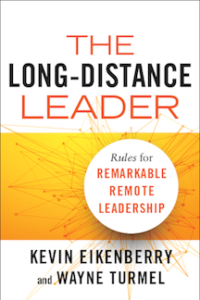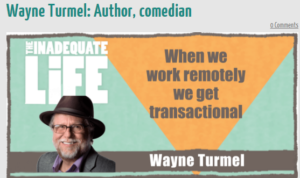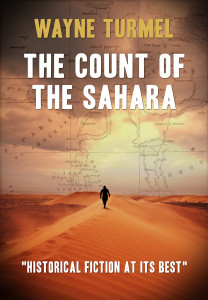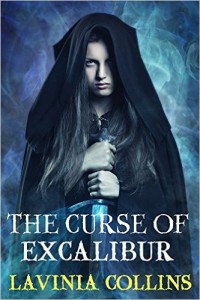Okay, here it is. This is the cover for my newest novel, Acre’s Orphans. It’s a sequel to 2017’s Acre’s Bastard. (Which, FWIW is on sale on Kindle for 99 cents November 23-30.)
First, the cover.
Now, here’s the back cover blurb:
Okay, here it is. This is the cover for my newest novel, Acre’s Orphans. It’s a sequel to 2017’s Acre’s Bastard. (Which, FWIW is on sale on Kindle for 99 cents November 23-30.)
First, the cover.
Now, here’s the back cover blurb:
With The Long-Distance Leader: Rules for Remarkable Remote Leadership out in the world for just over a week, I’ve been doing an incredible amount of promotion. Most of it is completely work-related, and you can find out everything you would ever want to know about that book at www.LongDistanceLeaderBook.com.
 By the way, if you’re traveling through an airport, it’s now a Hudson Booksellers Best Seller!
By the way, if you’re traveling through an airport, it’s now a Hudson Booksellers Best Seller!
I’ve also had a couple of chances to talk about my fiction work. Most enjoyably, an old colleague from my stand-up days, Keith Tomasek, has a terrific podcast about the arts and the creative process, The Inadequate Life. Recently, we talked for an hour about my stand-up days and the transition to being a grownup, as well as the ins and outs of publishing. It was a blast. If you’d like to hear it, it’s here. I think it’s the most wide-ranging and probably most honest interview I’ve ever done. And for a media ho like me, that’s saying something.
I got into corporate training because when I left stand-up, I had a 15-year hole in my resume and only one marketable skill; I could stand there and talk.
To Keith Tomasek, The Inadequate Life podcast

“I like to tell people I’m the love child of Alexandre Dumas and Hunter S Thompson and let them figure it out.”
When asked by James Quinland Mervey what my influences are….
Also, a fellow writer named James Quinlan Meservey interviewed me for an ongoing series on his blog about literary influences and why we do what we do. It was a lot of fun. You can read it here if you’d like. And check out James’ fantasy work.

At long last, The Count of the Sahara is available in paperback and Kindle.
Not only can you order the book, but people actually seem to be enjoying it.
Good historical fiction leaves you entertained while you learn something. Excellent historical fiction leaves you wanting to know more about the history and wondering where the history ended and the fiction began. This is excellent historical fiction.
Kevin Eikenberry, author of Remarkable Leadership
Wayne Turmel has created an exciting and well-crafted novel that draws the reader in from page one. The hero is Willy but the most interesting character is the fascinating Count de Prorok, a figure that any writer of historical fiction would be proud to have in their book. The story is well paced, set in an interesting period and full of surprises. I look forward to more.
Peter Darmon, author of “The Sword Brothers” series
Order now from Amazon in Kindle or paperback .
You can also buy directly from the Publisher
The test of a first-rate intelligence is the ability to hold two opposed ideas in the mind at the same time, and still retain the ability to function.- F Scott Fitgerald.
Yeah, I’m a freakin’ genius. I love historical fiction that is researched and full of interesting details. I also love fantasy (yes, I’m a sword and sorcery geek, sue me.) These two ideas come together, and often seem to clash. A good case in point is the sub-genre called “Arthurian fiction.”
From my earliest memories, the story of Arthur and the Knights of the Round Table have thrilled me. But was Arthur an actual historical character? If so, what about Merlin, who was a magician, after all? This has led to a schism between those who love “Arthurian Fantasy” and a more factual, history-based approach. Two of my favorite current writers take opposite approaches to the same source material.
Jack Whyte, the author of The Camulod Chronicles painstakingly researches his

books and places them in a gritty, dark period between the fall of the Roman empire, and the beginnings of that bizarre mix of Celts and Saxons that created pre-Norman Britain. I love his stuff: dark, philosophical, as close to “realistic” as something lost in the fog of time could be. If you’re not reading him, you should be. Just saying.
Lavinia Collins, on the other hand, writes Arthurian fantasy full of magic, sex and a Celtic/feminist approach. Here’s the thing, though. It’s not like she doesn’t know her history. The background of the stories is well researched and true to the period. She just chooses

to use the known history of the time as the starting point to spin a great yarn. Does that mean it’s not “historical fiction?” She has written a wonderful blog post about that dilemma in fact. Click here to read it.
A case in point is where Excalibur came from. Jack says it was forged from the metal that came from a meteorite, so it had unusual properties. According to Lavinia, it was forged by a woman blessed with magic in the caves under Avalon.
Is either “true?” Does it matter? I prefer to just enjoy them both. How about you?